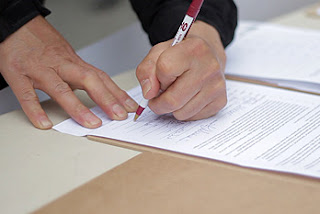これは凄いことですよ。 ワシントン・ポストが記事にしたってことは・・・。世界の世論はドンドン日本の拉致監禁・宗教迫害を取り上げて来てます。。。これで後藤徹さんの裁判での判決が、被告側の主張するように『拉致監禁はなかった』・・なんて言う判決を下したら・・・?
もう日本の司法の信頼はガタ落ちになってしまうでしょう・・・・。 後藤さんがんばれ!世界は真実を知っている。
以下、全記事の日本語訳です。
米国SAFEのメンバーが訳してくれました。
全文を読めば、世界の悲惨な人権問題と同等のレベルで米国が日本の拉致監禁・強制改宗問題を扱ってることがよくわかります。
>>>>>>>>ココから本文です。
The U.S. Commission on International Religious Freedom has issued a report highlighting
those it calls the worst violators of religious freedom in the world.
米国「国際信教の自由委員会」が、「世界の中で最悪の宗教の自由の違反している者」たちと題して、それらをハイライトしている報告を発表した。
Among them are many Asian and Middle Eastern governments, although
some Western European countries are also included.
ある西欧諸国も含まれてはいるが、アジアや中東の政府が、多くの含まれている。
The report from the bipartisan advisory body divides violators
into three categories. Fifteen “tier 1″ nations, marked red on the above map,
have committed “particularly severe” violations that are “systemic, ongoing and
egregious.” That includes all the countries you’d expect, as well as a few
worsening problem areas, such as Egypt and Nigeria. The “tier 2″ countries are
said to be “on the threshold” of meeting tier 1 status and include states that
might have serious problems but, often, are at least making an effort to
address them. A small third category of nations under “monitoring” for
violations includes, among other states, some in Western Europe.
超党派の諮問機関からの報告では、3つのカテゴリに違反者を分割している。地図の上の赤で書かれた15の「第1層」の国々は、そのシステム全体におよび、継続的になされており、「特別にひどい」違反がなされている。そこには、エジプトやナイジェリアのような問題が悪化している地域とともに、あなたが予想する全ての国が含まれている。「第2層」は「第1層」の状態とのきりきりの線のところにあるといえるし、深刻な問題があると思われる地域が含まれている。しかし、多くの場合、それに対処する努力がされている。 違反の「監視」の下にあるとされる国々の少ない第三のカテゴリーには、他の地域の中でも、西ヨーロッパの一部が含まれている。
The report isn’t just about documenting abuses: The tier 1
countries can be officially designated as “countries of particular concern” by
the U.S. State Department, at which point the president is legally required to
follow up with some sort of action, recommended by the report. It might
suggest, for example, engaging with Burmese civil society groups to promote
tolerance or working with Pakistani lawmakers to improve legislation.
この報告書は、単に虐待を文書にしているというものではない。「第1層」の国々が公式に米国務省によって「特に懸念される国」に指定されたと言うことで、その時点で(アメリカの)大統領は、ある種の(報告書で推選された)行動による対応をすることが法的に要求されるのである。例えて言えば、それはビルマ市民社会グループと係わり、穏和な対応を促進したり、法律を改善するためにパキスタンの議員に働きかけることなどを、示唆していると言える。
As the report itself notes, though, “in practice, the flexibility
provided in IRFA has been underutilized. Generally, no new Presidential actions
pursuant to CPC designations have been levied, with the State Department
instead relying on pre-existing sanctions.” In other words, the red countries
are usually already under some kind of trade restriction or sanction, which the
president can use to say that he’s already meeting the commission’s
requirements. In some cases, the president uses a waiver to avoid punishing
countries that are important to U.S. foreign policy, such as Saudi
Arabia and Uzbekistan.
報告書自体が記述しているように、「実際には、国際信教の自由委員会で提供された柔軟性が十分に活用されている。一般的には、特別に懸念されるべき国(Countries of Particular
Concern)の名称(指定)に基づいた、新たな大統領のアクションは課されたことがないが、その代りに既存の制裁に頼っている。」と。言い換えれば、赤で示された国は(アメリカ)の大統領が、彼が委員会(「国際信教の自由委員会」)の要望を満たしていると通常に言うごとく、それらの国はすでに、ある種の貿易制限または制裁の下にあるのでる。ある場合には、大統領はサウジアラビアやウズベキスタンなどの米国の外交政策にとって重要な国を罰することを避けるためにその権利放棄を使用するのである。
The tier 1 countries are typically cited for state-sponsored or
state-enforced religious discrimination, such as China’s suppression of Tibetan
Buddhists or Iran’s “prolonged detention, torture, and executions based
primarily or entirely upon the religion of the accuse.” In the case of some
countries, such as Egypt, the sins were those of omission: “In many cases, the
government failed or was slow to protect religious minorities from
violence. This violence and the failure to convict those responsible continued
to foster a climate of mpunity.”
「第1層」の国々は典型的には、中国によるチベット仏教徒に対する抑制ややイランの「主として、または完全にその非難されている宗教に基づいた上での長期拘留、拷問、処刑」などのように」国家が後援または国家の強制的な宗教差別として引用されている。
エジプトにように、このような一部の国の場合には、罪は不作為のものだった。「多くの場合、政府が失敗したか、または暴力から宗教的な少数派を保護するのが遅れたからだ。この暴力と責任者を有罪にすることを失敗してきたことが、処罰の風土を醸成し続けたのだ。」
The report explains, in excruciating detail, the larger trends and
worst incidents that motivated its categorizations. In Burma, for example, it
finds, “In the past year, over 1,000 Rohingya [Muslims] have been killed,
their villages and religious structures destroyed, and women raped during
attacks.” It also notes: “It is almost impossible for Muslims to obtain
building permits for either mosques or schools and unlicensed venues are
regularly closed or destroyed. The government has, in recent years, ordered the
destructions of mosques, religious centers, and schools.”
この報告書は、耐え難いほど細部にわたり、その分類の動機とされた大きな傾向と最悪の事件を、説明している。。ビルマでは例えば、こんな事が発覚した。「この一年間で、1,000人以上のロヒンギャ(イスラム教徒)が殺され、彼らの村や宗教的な構造が破壊された。そして彼らが攻撃する間には、女性が強姦された。その報告には「それはイスラム教徒にとり、モスクや学校を建てる為の認可を得ることがほとんど、不可能であり、許可のない会場などは定期的に閉鎖されるか、または破棄される。政府は近年では、モスク、宗教センター、学校の破壊を命じた。」とも記されている。
Tier 2 countries are cited for less systemic but still serious
violations, or for systemic refusals to improve religious freedoms. Russia, for
example, is cited for exploiting “anti-extremism” laws to restrict groups, such
as Jehovah’s Witness and some Muslim groups, that do not have any record of
advocating or using violence. The report praises India for curtailing
large-scale communal violence against religious minorities, but chides Indian
officials for refusing to further investigate past incidents.
「第2層」の国は、より全体の組織としてではないが、しかし依然として重大な違反を犯しており、宗教の自由に対しては、全体の組織としての改善を拒んでいるということで、に引用されている。ロシアは、例えば、エホバの証人やいくつかのイスラム教徒のような過去において、暴力を提唱したこともないし、犯した記録さえないようなグループさえも制限する「反過激」法を悪用しているということで引用されている。報告書では、宗教的少数派に対する大規模な共同暴力を節減したインドを賞賛しているとともに、さらに過去の事件に対する調査されることを拒否しているインド当局をたしなめている。
The third category of countries being “monitored” also lists,
somewhat vaguely, “Western Europe.” The section explaining its inclusion,
though, overwhelmingly focuses on three countries: France, Belgium and the
Netherlands, all of which are cited for “increasing restrictions on, and
efforts to restrict, various forms of religious expression.” In practice, this
often seems to mean the religious expression of Muslims. Laws against
traditional Muslim clothing or circumcision, for example, or over-broad hate speech
laws are “creating a growing atmosphere of intimidation against certain forms
of religious activity in Western Europe. These restrictions also seriously
limit social integration and educational and employment opportunities for the
individuals affected.”
「監視されている」という国の第三のカテゴリーは、やや漠然と「西ヨーロッパ」を表示している。そのインクルージョン(包含)
を説明するセクションでは、「さまざまな形による宗教的な表現への制約を増加 と、制約に努めている」と引用して圧倒的にこれらの3カ国に焦点を当てているのだが: 実際にはこの宗教的表現とは、しばしばイスラム教徒の宗教的表現を意味すると思われる。伝統的なイスラム教の衣装、または割礼に対する法律、例えば、またはオーバーに幅広いヘイトスピーチ法は「西欧における宗教活動の特定の形態に対する脅迫の雰囲気の増加させている。これらの制限はまた、その影響を受けた個々人の社会的統合と教育や雇用の機会を極端に制限している。」
その報告書は「拉致と強制改宗」といって日本での(宗教の自由に対する)動向について説明している。日本は、いずれの監視リストのカテゴリーには入っておらず、このセクションでは日本の宗教の自由について概して日本の政府を賞賛しているにもかかわらず、その(宗教の自由に対する)動向は、その名(拉致と強制改宗)が意味するごとくに警告されるべきである。
Over the
past several decades, thousands of individuals belonging to the Unification
Church, the Jehovah’s Witnesses, and other new religious movements (NRMs) have
been kidnapped by their families in an effort to force them to renounce their
chosen beliefs. In some extreme cases, as with Unification Church member Toro
Goto, individuals were confined against their will for a decade or more. Those
abducted describe psychological harassment and physical abuse by both family
members and “professional deprogrammers.” Police and judicial authorities have
neither investigated nor indicted those responsible for these acts, often
citing lack of evidence.
「過去数十年にわたって統一教会やエホバの証人などの新宗教運動に属する数千人の人々が、彼らが選んだ信仰を強制的に棄てさせる目的を持つ彼らの家族によって拉致されてきた。統一教会信者の後藤徹氏のように、自らの意思に反して10年以上も監禁されたような極端な例もある。拉致された人々は、家族や「職業的ディプログラマー」による精神的ハラスメントと身体的虐待を訴えている。警察や司法当局は、たいてい証拠不十分という理由で、そうした行為を実行した者たちに対する調査も起訴も行っていない」
Some readers, particularly
those from countries highlighted in the map above, may wonder why the report includes
nothing on the United States, which has seen some local and state-level
movements to expel or suppress mosques or other forms of public worship by
Muslims. And it’s a fair question. Alas, the commission exists to make
recommendations to the U.S. State Department, which of course does not have
oversight over the United States. Still, fairly or not, U.S. representatives
who seek to promote religious freedom abroad risk having their advice deflected
because some Tennessee officials tried to block construction
of a mosque. If nothing else, it’s a reminder that religious freedom is an
ongoing process as well as a state of being.
一部の読者、特に上記の地図でハイライトされる国々の読者は、何故、イスラム教徒のモスクやイスラム教徒の公的な礼拝の他の形式を追放したり、抑制をしたりするある地方と、州のレベルでの運動が見られるアメリカがこの報告書に含まれていないのかと疑問に思うかもしれない。
そして、それは公平な質問である。
委任(国際信教の自由委員会)は, 米国国務省に勧告をするために存在するのであり、そして、もちろんアメリカ合衆国の監視をもして(米国国務省に勧告をするために存在するのである。)
そして、それは公平な質問である。
委任(国際信教の自由委員会)は, 米国国務省に勧告をするために存在するのであり、そして、もちろんアメリカ合衆国の監視をもして(米国国務省に勧告をするために存在するのである。)
しかし、公正が、不公正か、外国に宗教の自由を推進する米国の代表は、彼らの忠告に対する偏見を持たせる危険性がある。というのは、一部のテネシー当局がモスクの建設を妨害しようとしたからである。
他に何もなければ、 信教の自由とは継続のプロセス、または、存在の有様であるということを思い出させてくれるものなのだ。
米国統一教会公式ホームページの記事はコチラ(英語)






